
Doctors recommend that careful preparation and maintaining health during the holidays is something that cannot be taken lightly - Photo: DUONG LIEU
Dr. Kieu Xuan Thy - Deputy Head of Campus 3, University of Medicine and Pharmacy Hospital, Ho Chi Minh City - said that the long holiday is a time that many people look forward to after stressful working days. This is an opportunity to travel , visit family, and have fun with friends.
However, changes in living environment, habits and diet these days can potentially pose many health risks.
Especially the current erratic weather increases the risk of infectious diseases, flu or outbreaks of underlying diseases. Therefore, careful preparation and health maintenance during the holidays are not to be taken lightly.
Eat scientifically to protect the digestive and cardiovascular systems
Dr. Thy said that on long trips, many people often eat irregularly or choose fast, convenient foods that do not ensure nutrition. This is the cause of digestive disorders, food poisoning, increased blood lipids or worsening existing chronic diseases.
Therefore, it is important not to skip breakfast, this is an important meal that helps maintain energy throughout the day, especially for the elderly and diabetics.
Absolutely avoid raw or undercooked dishes and seafood of unknown origin to limit the risk of digestive disorders or food poisoning.
Pay attention to adding green vegetables and fruits to provide vitamins, fiber, limit constipation and increase resistance.
Especially drink enough water from 1.5-2 liters/day, can increase if traveling outdoors in hot weather. Avoid overusing carbonated soft drinks and alcohol.
Prepare healthy snacks such as nuts, dried fruit, yogurt or whole wheat bread for long trips or between meals.
A scientific nutritional regimen during the holidays not only helps the body stay healthy but also contributes to maintaining biological rhythms, limiting the outbreak of many chronic diseases.
People with underlying diseases: High-risk groups need to be vigilant
Dr. Thy noted that people with high blood pressure, diabetes, cardiovascular disease, asthma, liver and kidney disease or lipid disorders are more likely to experience complications when changing their environment and lifestyle. Therefore, this is a group that needs special attention.
Therefore, you need to bring enough medicine and take it in the right dose: Prepare enough medicine for the whole vacation, even bring a few extra days in case the trip is extended or lost.
Take medication on time, never stop taking it even if you feel well; arrange medication in a clearly labeled box to avoid confusion when using.
People with high blood pressure and cardiovascular disease: eat a low-salt diet, avoid alcohol, and do not overexert themselves.
Diabetics: do not skip meals, limit starch and sweets; carry small candies to prevent hypoglycemia.
People with asthma, lung disease: carry inhaler, avoid polluted and dusty environments.
People with liver and stomach disease: limit alcohol, greasy, spicy and sour foods to avoid irritation.
If you experience symptoms such as chest pain, difficulty breathing, dizziness, high fever, frequent diarrhea, etc., you should go to the nearest medical facility. Never increase your medication dose or take additional medications without a doctor's prescription.
Maintain daily exercise by walking, light exercise for 20-30 minutes to maintain flexibility, increase blood circulation. When traveling long distances: should stand up, do light exercise or move arms and legs every 1-2 hours to prevent deep vein thrombosis.
Avoid climbing high mountains, swimming long distances, or scuba diving if you have underlying cardiovascular or respiratory disease. Get enough sleep: don’t stay up too late to help your body recover and strengthen its resistance.
Medicine bag and medical supplies needed when traveling
Dr. Thy recommends a compact but complete medicine bag as a "companion" on every trip:
Basic medications: paracetamol (fever reducer, pain reliever), oresol (electrolyte rehydration), berberine (diarrhea), anti-allergy drugs (loratadine), mild pain relievers.
Medication for underlying disease: blood pressure, diabetes, cardiovascular, asthma… according to doctor's prescription.
Medical supplies: thermometer, bandage, antiseptic solution, mask, hand sanitizer.
Other essentials: Motion sickness pills, rehydration tablets, sunglasses, sunscreen.
In traditional medicine, some herbal teas can be easily carried around, helping to cool down, aid digestion and relax the mind:
Chrysanthemum tea: cools the body, calms the mind, reduces stress and aids sleep. Artichoke tea: aids digestion, cools the liver, promotes bile production, suitable for people who eat a lot of greasy foods. Ginger tea: warms the spleen and stomach, prevents stomach cold, reduces nausea, useful for people who get motion sickness. Lotus tea (lotus heart, lotus leaf): has a sedative effect, helps sleep well; lotus leaf is also studied for its ability to help regulate blood lipids.
However, herbal tea should only be consumed in moderation and should not replace water completely. People with underlying medical conditions should consult a doctor before using it regularly to avoid drug interactions.
Source: https://tuoitre.vn/thoi-tiet-that-thuong-lam-gi-tranh-do-benh-khi-di-choi-dip-nghi-le-20250830104052595.htm


![[Photo] General Secretary To Lam attends the ceremony to celebrate the 80th anniversary of the post and telecommunications sector and the 66th anniversary of the science and technology sector.](https://vphoto.vietnam.vn/thumb/1200x675/vietnam/resource/IMAGE/2025/9/29/8e86b39b8fe44121a2b14a031f4cef46)

![[Photo] General Secretary To Lam chairs the meeting of the Central Steering Committee on preventing and combating corruption, waste and negativity](https://vphoto.vietnam.vn/thumb/1200x675/vietnam/resource/IMAGE/2025/9/29/fb2a8712315d4213a16322588c57b975)
![[Photo] General Secretary To Lam receives US Ambassador to Vietnam Marc Knapper](https://vphoto.vietnam.vn/thumb/1200x675/vietnam/resource/IMAGE/2025/9/29/c8fd0761aa184da7814aee57d87c49b3)
![[Photo] Many streets in Hanoi were flooded due to the effects of storm Bualoi](https://vphoto.vietnam.vn/thumb/1200x675/vietnam/resource/IMAGE/2025/9/29/18b658aa0fa2495c927ade4bbe0096df)
![[Photo] National Assembly Chairman Tran Thanh Man chairs the 8th Conference of full-time National Assembly deputies](https://vphoto.vietnam.vn/thumb/1200x675/vietnam/resource/IMAGE/2025/9/29/2c21459bc38d44ffaacd679ab9a0477c)

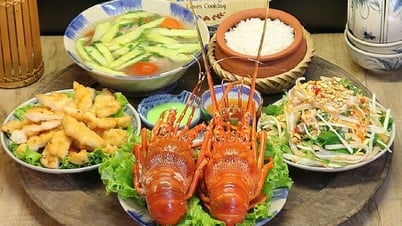



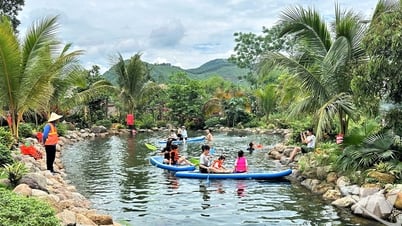


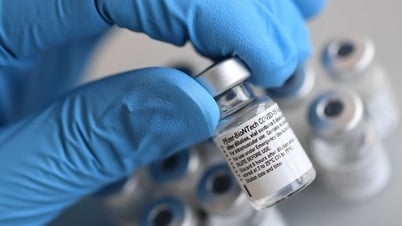


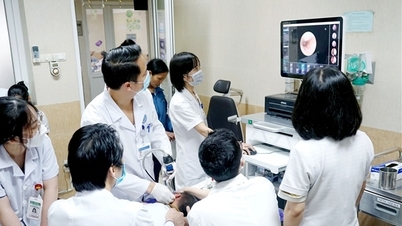

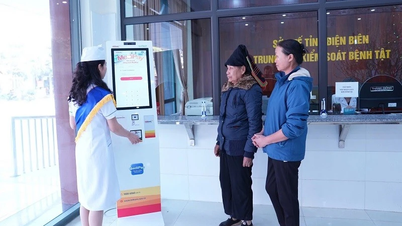

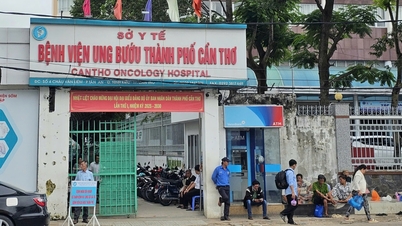









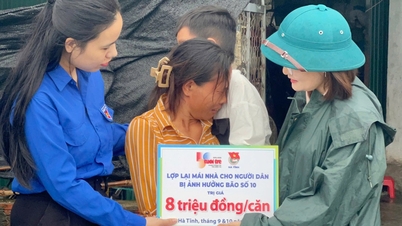


















































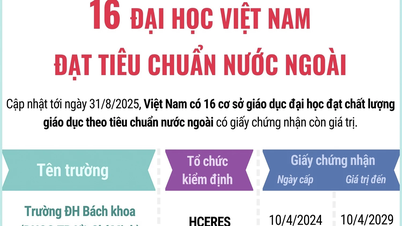




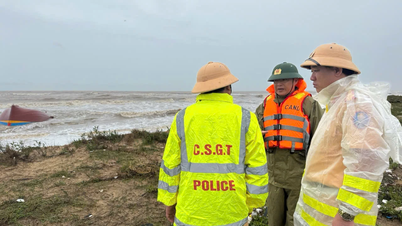















Comment (0)